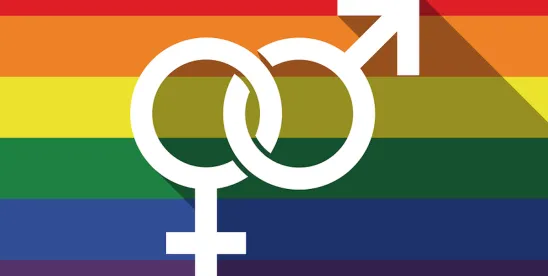On May 15, 2025, the U.S. District Court for the Northern District of Texas issued a significant ruling in State of Texas v. Equal Employment Opportunity Commission (No. 2:24-cv-00173), declaring that the EEOC’s 2024 Guidance on LGBTQ+ workplace protections exceeds the agency’s statutory authority.
The case centers on the EEOC’s 2024 Enforcement Guidance (the “Guidance”), which interprets Title VII of the Civil Rights Act of 1964 to prohibit workplace harassment and discrimination based on sexual orientation and gender identity. This Guidance extends protections to transgender and non-binary individuals to include issues such as restroom access, dress codes, and the use of preferred pronouns.
The state of Texas, along with the Heritage Foundation, challenged this guidance, arguing that it unlawfully extends the Supreme Court’s decision in Bostock v. Clayton County beyond its scope. The court also ruled that the guidance violates the Administrative Procedure Act by not undergoing proper rulemaking procedures. In Bostock, the Supreme Court found that Title VII prohibits discrimination on the basis of sexual orientation and gender identity.
In vacating the portions of the Guidance addressing workplace protections for transgender and non-binary individuals, the court found that the EEOC’s reliance on Bostock’s holding interpreting “sex” to include gender identity and sexual orientation was misplaced. The court emphasized that the Supreme Court did not “redefine ‘sex’” in Bostock and in fact expressly found that “sex” refers “only to biological distinctions between male and female,” and it concluded that the Supreme Court “firmly refused to expand the definition of ‘sex’ beyond the biological binary.” As such, the court determined that Title VII does not bar workplace employment policies that protect differences between men and women (such as having a policy requiring employees to use the bathroom that corresponds with their birth sex, regardless of their gender identity). It (and, by extension, Bostock) only prohibits an employer from firing an employee because they are transgender or homosexual — not from other action or inaction resulting in discrimination or harassment. Importantly, this decision is at odds with other courts that have interpreted Bostock to prohibit workplace discrimination and harassment on the basis of sexual orientation or gender identity more broadly.
The court’s narrow reading of Bostock leaves employers with growing uncertainty as to how to address sexual orientation and gender identity issues is the workplace. The EEOC has already deemphasized its Biden-era focus on transgender bias cases, and it is unlikely that the agency’s Acting Chair, Andrea Lucas, will appeal the decision based on public comments she has made regarding the 2024 Guidance and her plans to rescind it. That said, some states continue to expand workplace protections for LGBTQ+ individuals, resulting in a patchwork of laws and regulations regarding employer obligations.
For now, employers should still consider the EEOC Guidance in examining their obligations under the law. Texas v. EEOC is only one case, and although it is unlikely to face an appeal, its narrow reading of Bostock is likely too narrow for employers to rely on. Just because the 2024 Guidance is partially vacated, it is clear that Title VII still protects individuals from sex discrimination, and Bostock did, in fact, interpret sexual orientation and gender identity as extensions of “sex,” even if they are distinct concepts from biological sex. Thus, employers should continue to ensure there are adequate workplace protections covering LGBTQ+ status, including complaint procedures and regular anti-harassment training programs.




 />i
/>i
